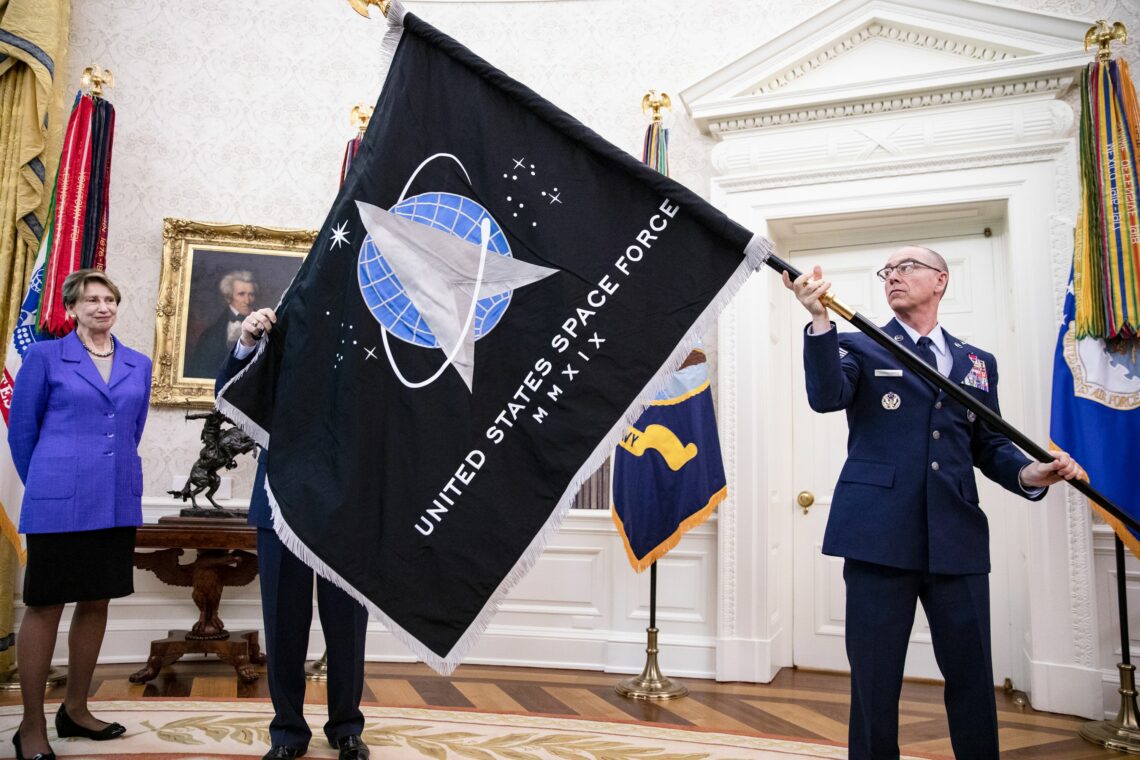Scenarios for U.S. space policy under Biden
The Biden administration says it plans to keep space as a priority, and in fact it has retained some Trump-era policies pushing American space policy forward. But there are worries that domestic political concerns could cause the White House to squeeze budgets or lose focus.

In a nutshell
- President Biden wants to continue the U.S.’s focus on space
- Low funding could derail its progress in defense initiatives
- Civilian projects could suffer from less government investment
There is no question that the United States intends to remain a prominent space power under President Joe Biden. As with many of its positions, the new administration seems to be imitating many of the policies implemented by President Barack Obama – unsurprisingly, since many current officials served in the Obama White House. Still, many of President Donald Trump’s key space initiatives remain in place and are expected to continue. The question is whether the Biden team will invest the attention and resources necessary to sustain American space dominance in an era of great power competition.
Defending space
One area where the U.S. could see significant policy adjustments is military space programs. There was some speculation that President Biden might seek to abolish the Space Force, an independent branch of the military established under President Trump. That seems unlikely. The creation of the branch was supported by significant majorities in the U.S. Congress: 220 to 197 in the House of Representatives and 86-8 in the Senate. It would take another law to disband the force. Even if President Biden wanted to erase his predecessor’s legacy, there is little likelihood Congress would approve such a measure. And so far, the administration has not shown a desire to make that move.
Nevertheless, U.S. military space programs still face difficulties in addressing the challenges of great power competition. The rationale for creating the new branch was that the U.S. Air Force, which had held the preponderance of space operation responsibilities, proved unable to think strategically about ensuring American dominance in space. Among the Space Force’s current leadership cadre, the culture is not much better.
The force has already been criticized for failing to set a clear identity or purpose.
The force has already been criticized for failing to establish a clear identity or purpose. For example, a report by U.S. government-sponsored think tank RAND noted that “if the Space Force is limited to being a force enabler rather than directly engaging in combat, then it will have difficulty demonstrating its effectiveness, justifying its existence as a separate service, and developing a distinct identity.”
For now, one might expect the limited vision and lack of innovation, since the entire generation of leaders are from the Air Force. The Space Force has barely begun developing its own leaders, drawing some new officers from the Air Force Academy. This year its first 86 graduates were commissioned directly into its ranks.
Moreover, there are worries that the new administration could squeeze defense spending, limiting opportunities for the new branch to work with the private sector on improving the moribund system of defense acquisition. If Congress does not pass a budget this year, then defense operations, including the Space Force, will be funded through a continuing resolution. With the hyper-partisan divisions in Washington, legislators may not even pass a National Defense Authorization Act, which is traditionally the vehicle for processing reforms.
All that said, overall funding for the Space Force increased in the current budget, up by 13 percent from last year (significantly outpacing the Air Force’s 2.26 percent increase). In addition, the Air Force received about $1 billion in funding earmarked for Space Force personnel. Including those funds, the Space Force budget increased 19 percent, while the Air Force’s grew by just 1.6 percent.

Finally, like the other services, the Space Force has become mired in political controversies. One issue of growing controversy in the armed forces concerns policies on racial, gender and cultural equity. In one highly publicized incident, Lieutenant Colonel Matthew Lohmeier, the commander of the 11th Space Warning Squadron at Buckley Space Force Base, Colorado, was removed from his post for publicly criticizing mandatory training on critical race theory. These issues are likely to exacerbate civil-military tensions in oversight of all the services, including the Space Force.
Civilian space
The Biden White House will likely continue a process that began under the Obama administration, relying more on the commercial sector for much of the day-to-day operations of space. This has been the strongest area of growth in U.S. space capabilities including space launch, satellite-based broadband internet, space vehicles and resupply of the International Space Station. In all these fields, private entrepreneurs are demonstrating innovation, creativity and performance excellence, all while generating revenue.
However, based on the policies of the Obama era, there is concern over whether the Biden administration will continue to robustly invest in the private sector. President Obama, for example, canceled the Constellation Program, which included the development of systems required to establish a presence on the Moon and crewed space flight to Mars. He tried to buffer that news with a promise to increase NASA’s budget by $6 billion over a five-year window. Instead, the administration then quietly reduced its budget by more than $11 billion. The fear is that the Biden administration will follow the same strong rhetoric but weak investment strategy.
Without pressure for action from the White House, both Congressional support and NASA’s momentum could falter.
President Trump reestablished the National Space Council, which is chaired by the vice president and which the Biden administration has decided to maintain. Critics point out that Vice President Kamala Harris has not demonstrated much knowledge about space or much interest in her role as chair of the Council. They add that given her inaction in other high-profile appointments, such as in dealing with immigration and border security, the council could lose steam as a driving force of administration space policy.
Scenarios
Without the pressure for action from the White House, both Congressional support and NASA’s momentum in space exploration are likely to falter. The U.S. will probably miss the deadline of returning to the Moon by 2024, which will have significant consequences. Beijing will spin the failure as a propaganda victory. Coming on the eve of national elections, the optics could hurt the administration politically.
Finally, the U.S. may seek to cooperate with Russia and China and negotiate international space treaties to ameliorate competition. These moves would garner little bipartisan support, while Russia and China would most likely be unreceptive. The U.S. has better prospects for joint program development with allies such as Japan, Australia and India.
The most likely scenario is that despite the pressures of great power competition, U.S. space efforts will lose the momentum of the Trump years. However, the U.S. will continue to develop both military space capabilities and commercial space efforts. A “Sputnik moment” might propel the administration to redouble its space efforts, but domestic political pressure will likely cause the administration to continue its slow walk into space.







